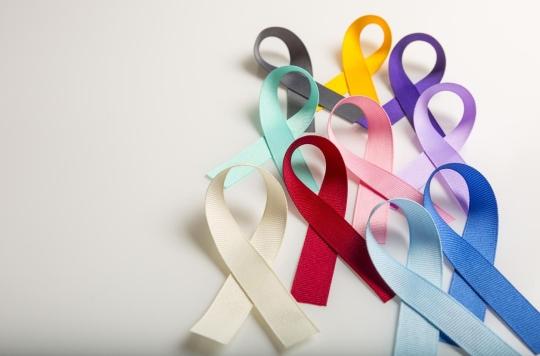In terms of cancer risk, there are indeed disparities between men and women. The cause could be underlying biological differences between the sexes.

- In France, the cancer responsible for the greatest number of deaths among men is lung cancer.
- Among women, breast cancer is responsible for the greatest number of deaths.
“Cancer incidence is higher in males than in females in most common anatomical regions, for currently unknown reasons,” wrote scientists from the National Cancer Institute in work published in the journal Cancer.
294,100 attendees
As part of this study, they tried to find out to what extent behaviors (namely smoking and alcohol consumption), anthropometry (BMI and height), lifestyles (activity physique, diet, medication intake) and medical history explain the male predominance of cancer risk in 21 common body areas. For the purposes of the work, the researchers analyzed data from 171,274 men and 122,826 women aged 50 to 71, who participated in a cohort, called the “National Institutes of Health-AARP Diet and Health Study”, from 1995 to 2011. .
An increased risk of cancer in men
According to the results, 17,951 new cancers were reported in men and 8,742 in women. “The incidence was lower in men than in women only for thyroid and gallbladder cancers, and the risks were 1.3 to 10.8 times higher in men than in women for other anatomical sites”, can we read in the study.
For most other parts of the body, the risks were higher in men than in women, with the greatest increases for bladder cancer, gastric cardia cancer, laryngeal cancer, and adenocarcinoma of the stomach. ‘esophagus.
Biological factors linked to sex
According to the authors, differences in risk behaviors and carcinogenic exposures between the sexes explained only a modest proportion of the male predominance of most cancers (ranging from 11% for esophageal cancer to 50% for lung cancer).
The team suggested that biological gender differences, such as physiological, immunological or genetic differences, played a major role in the risks of developing cancer in men compared to women.
“Our results show that there are differences in cancer incidence that cannot be explained by environmental exposures alone. This suggests that there are intrinsic biological differences between men and women that influence vulnerability to cancer. cancer”, said Sarah S. Jackson, author of the research, in a statement.

















